Submitted by WA Contents
MVRDV releases free CarbonSpace tool for public use for architects and designers
Netherlands Architecture News - Oct 21, 2025 - 04:22 1791 views
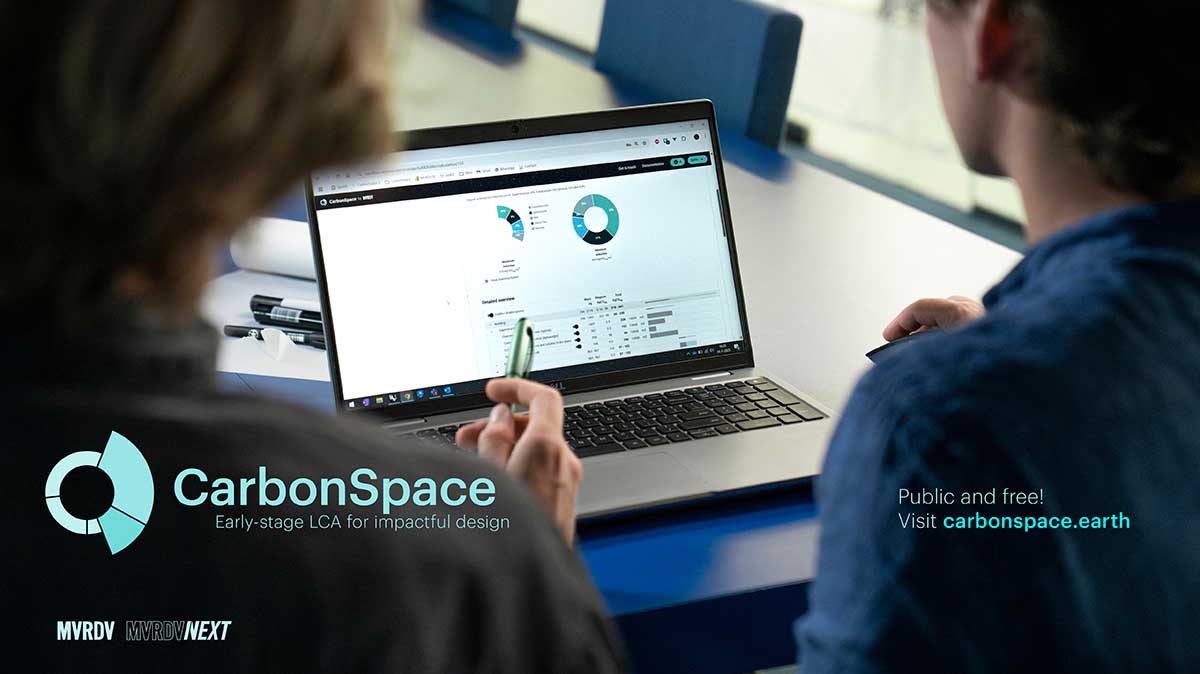
A transparent web-based tool called CarbonSpace was introduced by MVRDV to assist architects in designing with embodied carbon from the very beginning of the design process.
CarbonSpace, which is now freely accessible to the public, was created with the goal of enhancing carbon literacy and advancing data transparency.
The tool, which was developed by Studio AvW and the practice's research and development team MVRDV NEXT, is intended to assist with well-informed decision-making at every stage of the design process, beginning with a napkin drawing.
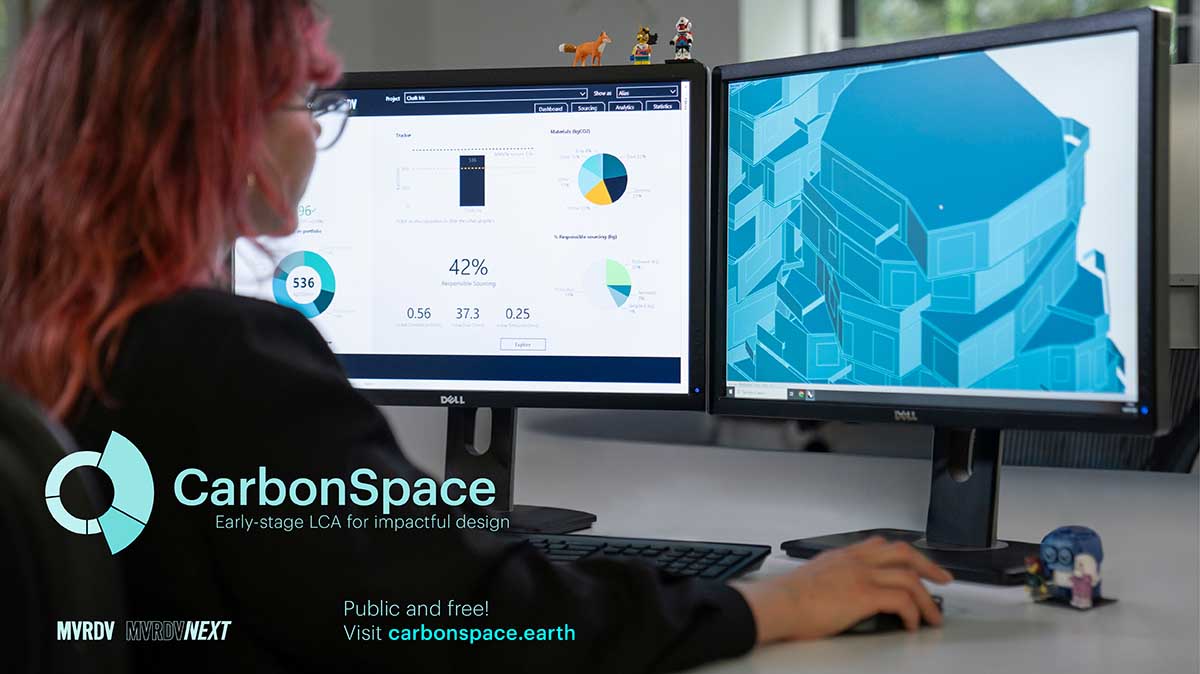
In addition to providing quick feedback and the ability to evaluate various design ideas, it operates with clear databases and quantity estimations.
Following its launch, the tool will also be used to assist create a common, worldwide understanding of embodied carbon in buildings in partnership with the Council on Tall Buildings and Urban Habitat (CTBUH).

The building sector is responsible for 39% of the world's carbon emissions, making it a significant contributor to climate change. Despite increased knowledge, embodied carbon reduction remains challenging.
The over-reliance on computation tools, which necessitate intricate models, exact data, and sophisticated databases that are frequently concealed behind a paywall, is one of the several obstacles in this process. Because of this, the chance to alter the design is frequently gone by the time embodied carbon estimates are finished.
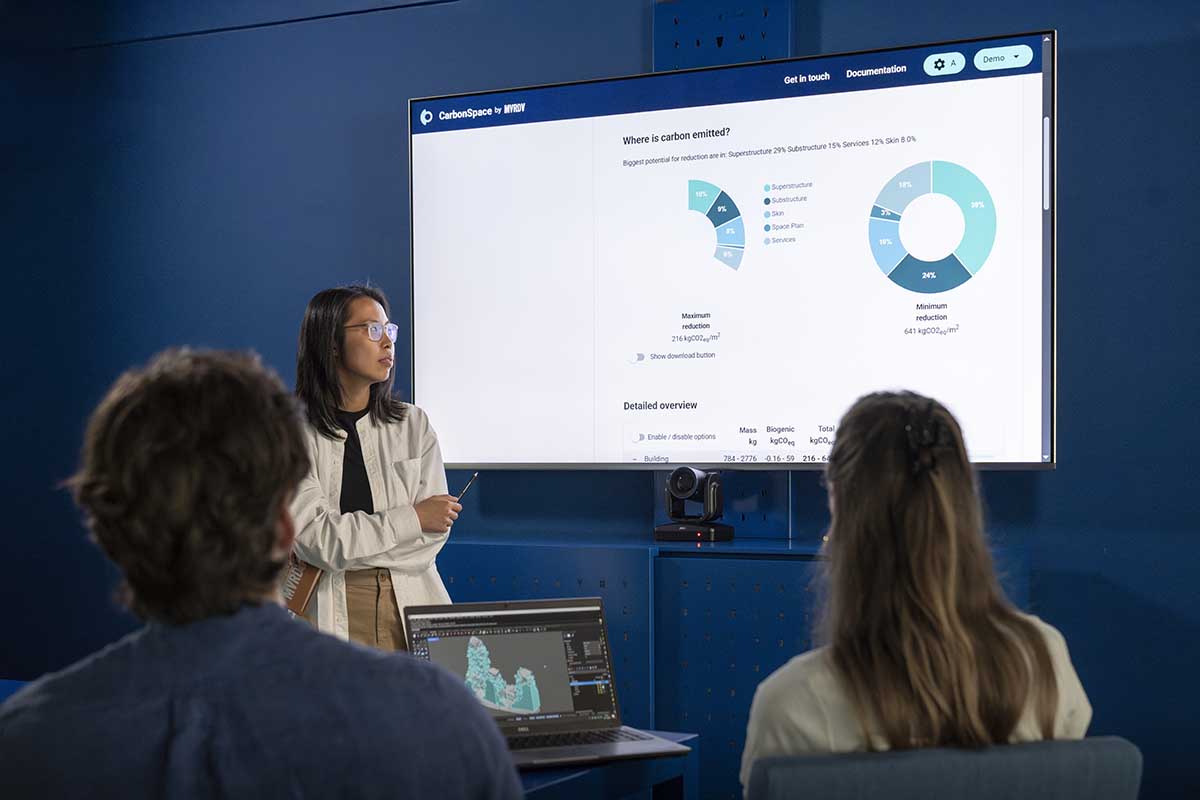
Decarbonization has not accelerated or deepened as a result of this drive for accuracy; on the contrary, an emphasis on reporting appears to have diverted designers from taking significant action. Furthermore, national laws and requirements differ, making it practically impossible to compare projects' carbon emissions honestly.
According to the MVRDV team, it is difficult to determine what works and even more difficult to advance without a common language. The firm created CarbonSpace as a useful and transparent tool for designers in answer to this difficulty.
The tool is designed to work from the "napkin sketch" stage, using crude input data or even basic rules of thumb to provide instant feedback on the carbon consequences of design choices, rather than concentrating on comprehensive carbon calculations later in the design process.
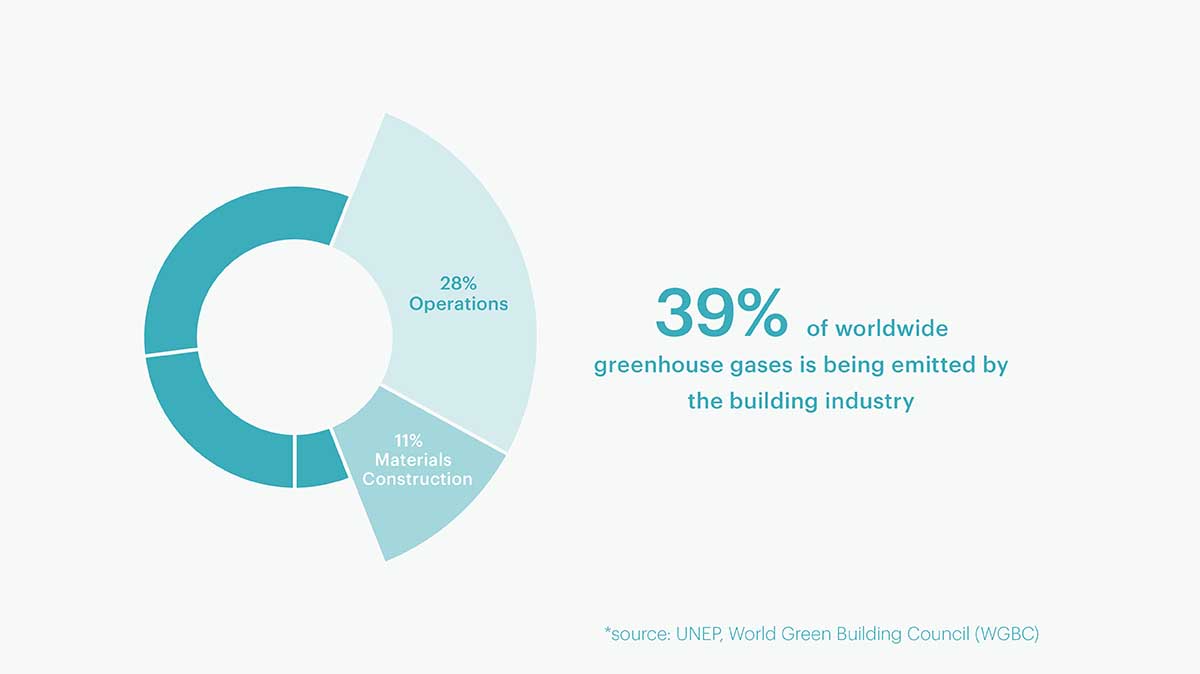
CarbonSpace, Diagram
As such, it is not a validation tool, but a decision-support tool: "CarbonSpace won’t solve the climate crisis on its own. But it will help architects design with carbon from day one and make informed decisions", explains Sanne van der Burgh, head of MVRDV NEXT.
"We want to give designers the confidence to act without waiting for perfect data. More importantly, we want to create a shared language for carbon, so we can collaborate, learn from each other, and make better decisions as an industry," Van Der Burgh added.

Carbon in building elements
CarbonSpace uses a reduced version of the open-source Ökobaudat database, which is kept up to date by the German Federal Government, to link quantity inputs like areas of floor and façade or the volume of a building's foundation to a streamlined, globally representative carbon database.
Pre-set libraries of common parts, materials, and detail build-ups are also included in the program, which enables quicker estimations for a variety of project kinds.

Carbon in structure
By using this method, CarbonSpace assists design teams in comprehending how various materials, systems, and architectures impact the embodied carbon of a project.
This procedure has already caused MVRDV to prioritize low-weight designs as the main determinant of embodied carbon. Additionally, it has enabled the firm to guide projects through the design development process, raising the alarm when a number of compromises endanger the design's original sustainable aspirations.

CarbonSpace, Features
With the use of a freely available API, users can further enhance CarbonSpace's capabilities by connecting the program to Rhino, Revit, or Microsoft's Power BI application to create helpful data visualizations.
In the instance of MVRDV, the latter feature was applied to develop a dashboard that tracks the portfolio's overall progress toward the 2030 climate targets and compares the carbon emissions of all of the company's projects. Likewise, other users will be able to design their own dashboards to suit the unique requirements of their organization.

CarbonSpace, Input quantities
MVRDV has made the decision to make CarbonSpace publicly accessible and to invite industry partners to utilize, test, and enhance the tool in order to increase its effect. This choice underscores a fundamental conviction that effective climate action requires transparency and cooperation.
Additionally, free access will inspire more people to submit their projects to the Carbon Race, a public, anonymous, and optional dashboard that tracks the community's progress toward low-carbon designs and promotes friendly competition.
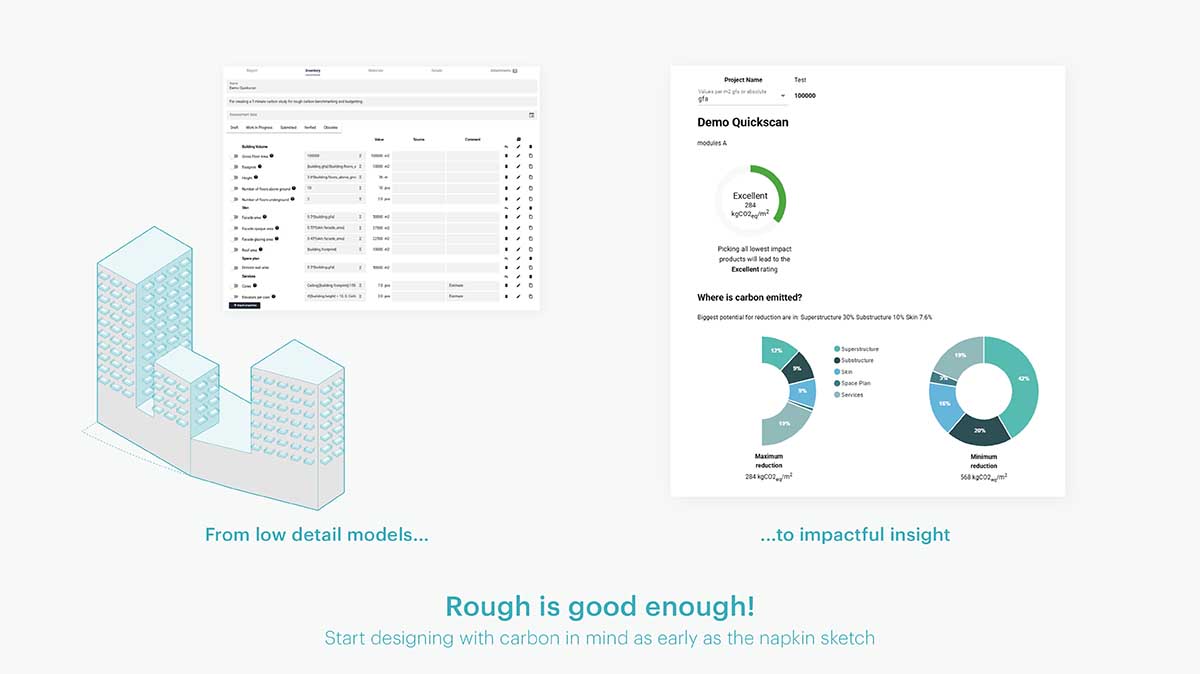
CarbonSpace, Rough is good enough
At the core of a new collaboration with CTBUH, the tool is already being utilized by a variety of beta partners, including academic institutions, sustainability consultants, engineers, and architects.
CTBUH is implementing CarbonSpace as part of its global Sustainability Initiative to facilitate transparent, cross-border comparisons of tall building projects.
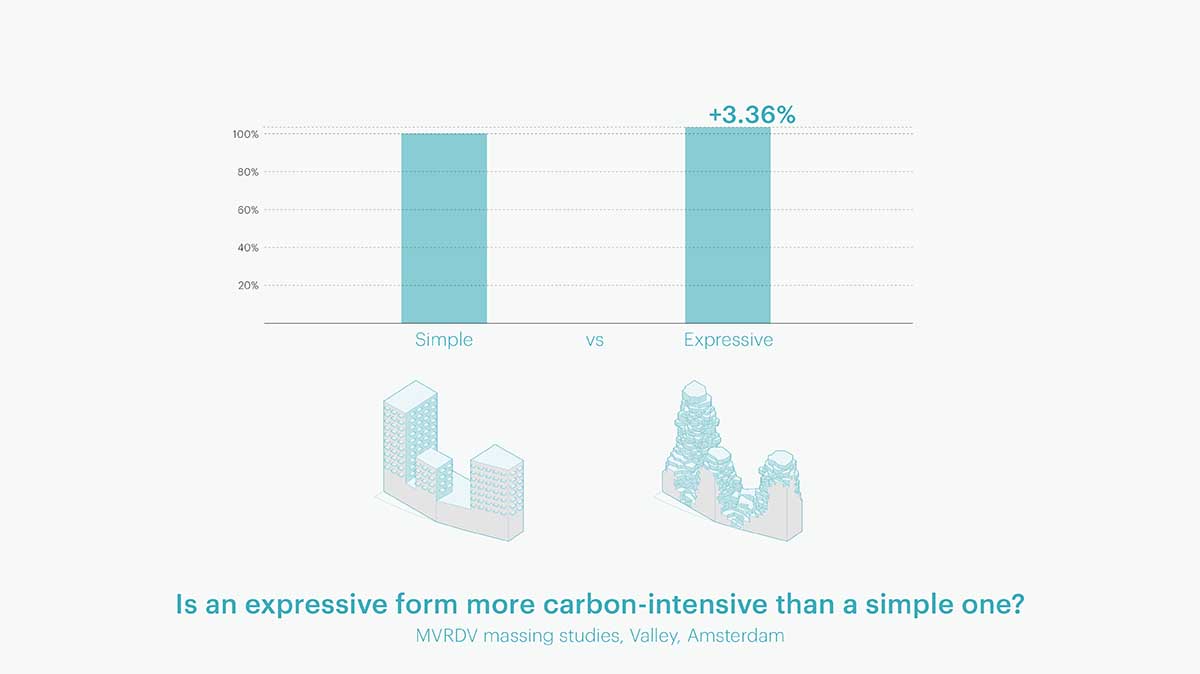
CarbonSpace, Form
"Our collaboration with MVRDV NEXT enables us to shape the future of sustainable urban development, through critical research and the dissemination of ground-breaking innovations," said CTBUH chair Shonn Mills.
"As part of our 2026 Sustainability Initiative Program, CarbonSpace will help facilitate a collaborative dashboard where professionals, academics, and industry leaders converge to exchange building data and benchmark their projects against innovative practices in the tall building industry," Mills added.
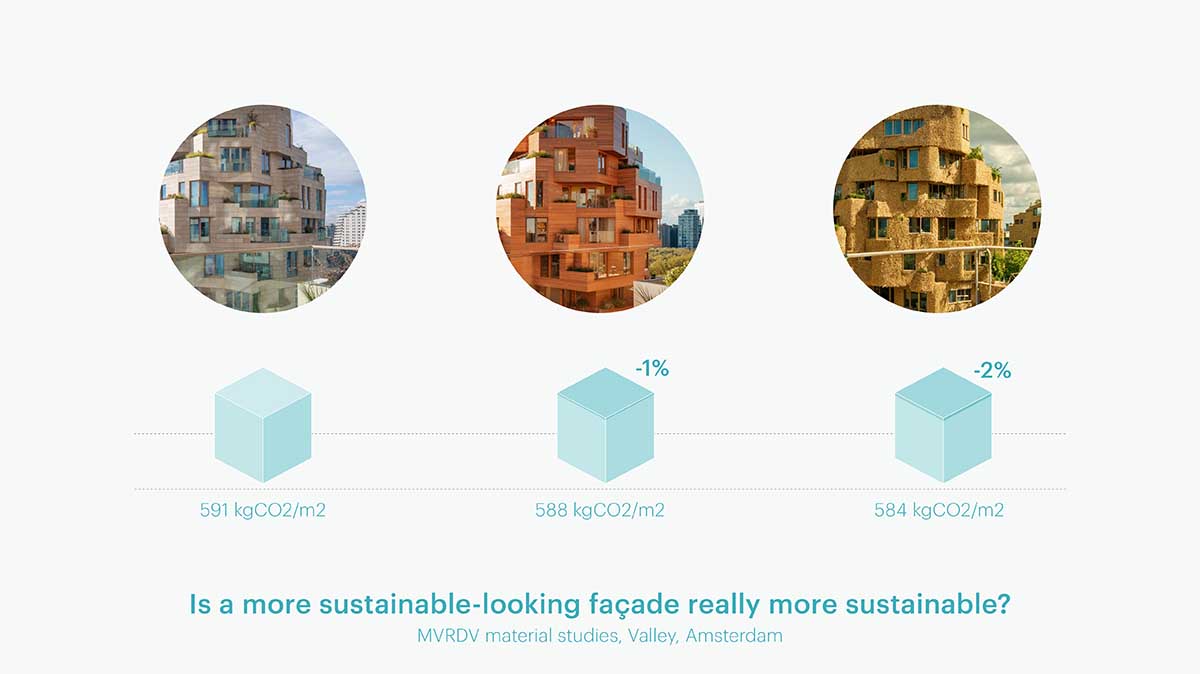
CarbonSpace, Material
CarbonSpace is now free to use and in public beta. MVRDV invites experts in the field to test the tool, provide comments, and help shape its continued development.
The practice aims to promote a future where design is not only aesthetically pleasing and useful but also lighter, smarter, and emits less carbon through open communication and community knowledge.
The public launch of CarbonSpace coincided with the opening of MVRDV’s exhibition Confessions Carbone in Paris. The exhibition gives an honest, behind-the-scenes account of MVRDV’s sustainability journey, in which CarbonSpace plays a key role, with 12 projects presented in the form of a carbon analysis.
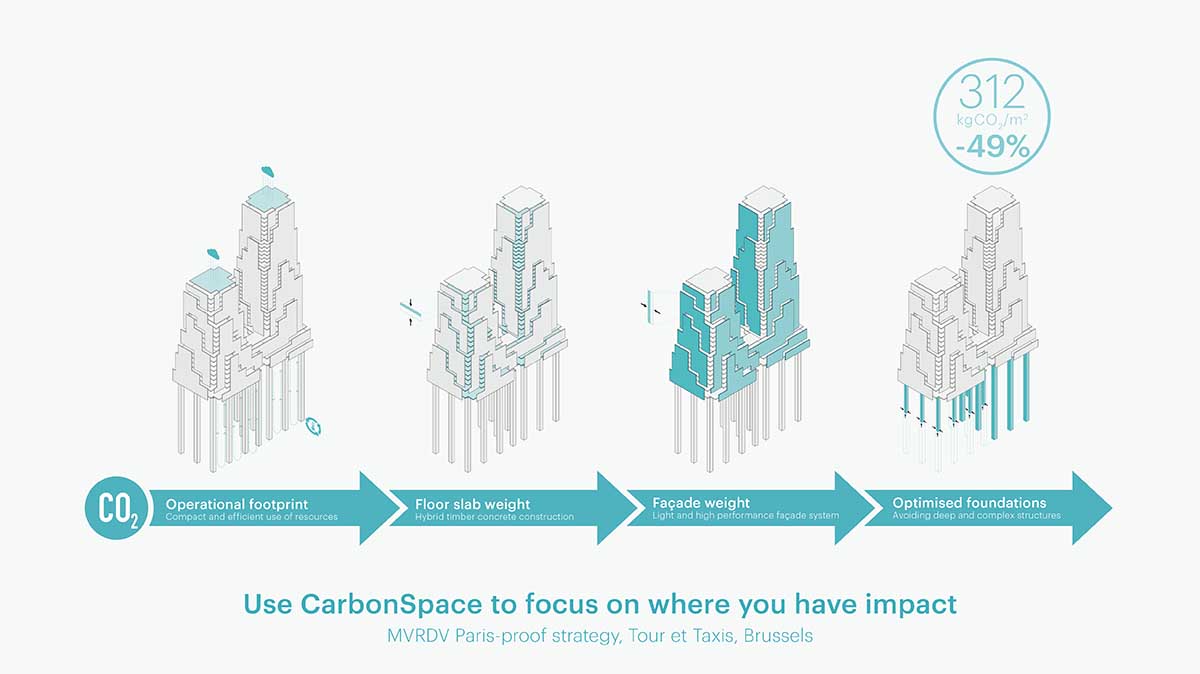
CarbonSpace, Impact

CarbonSpace, Data analytics
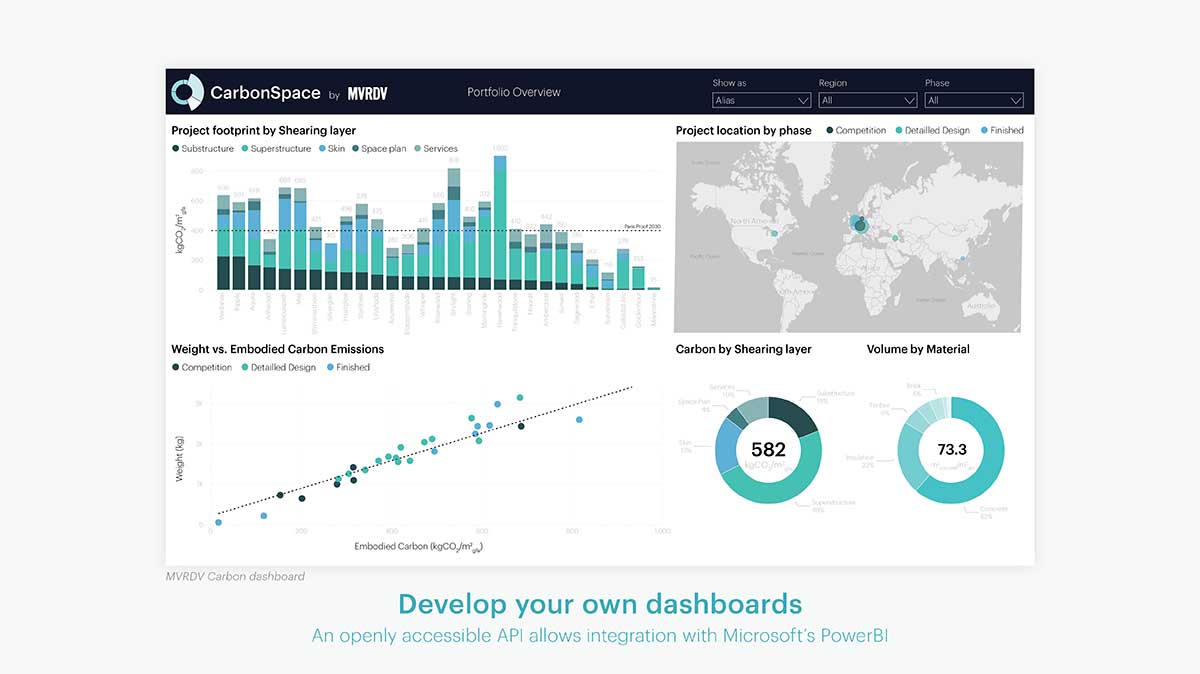
CarbonSpace, Dashboard
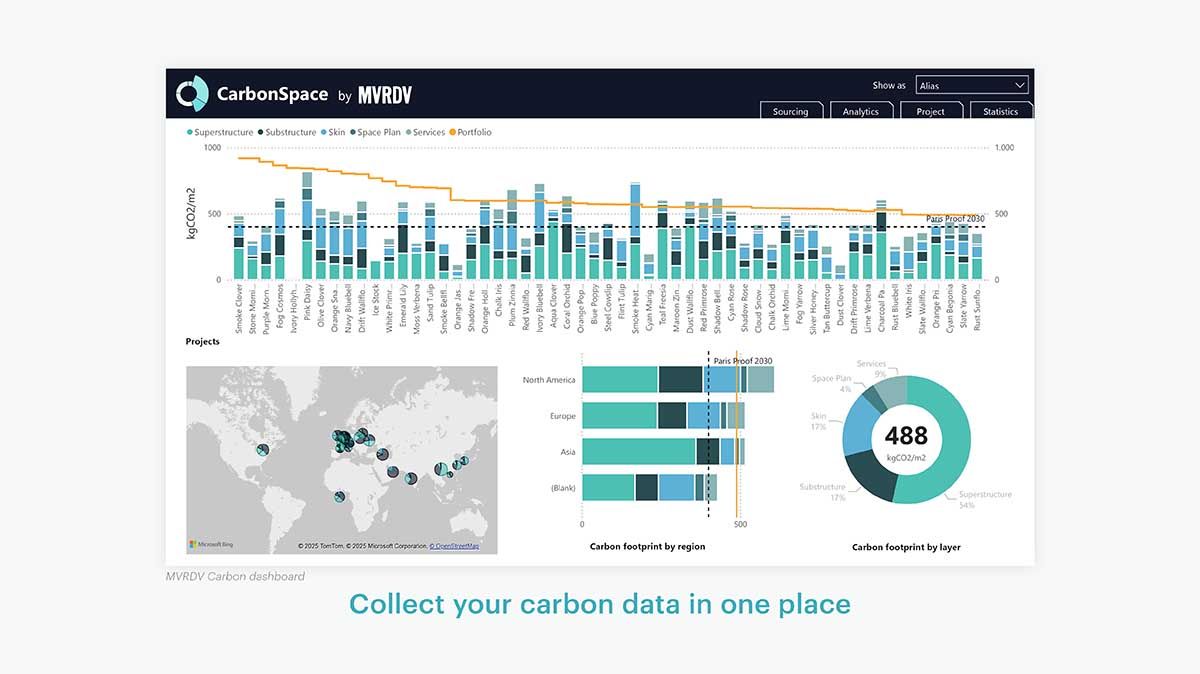
CarbonSpace, Dashboard
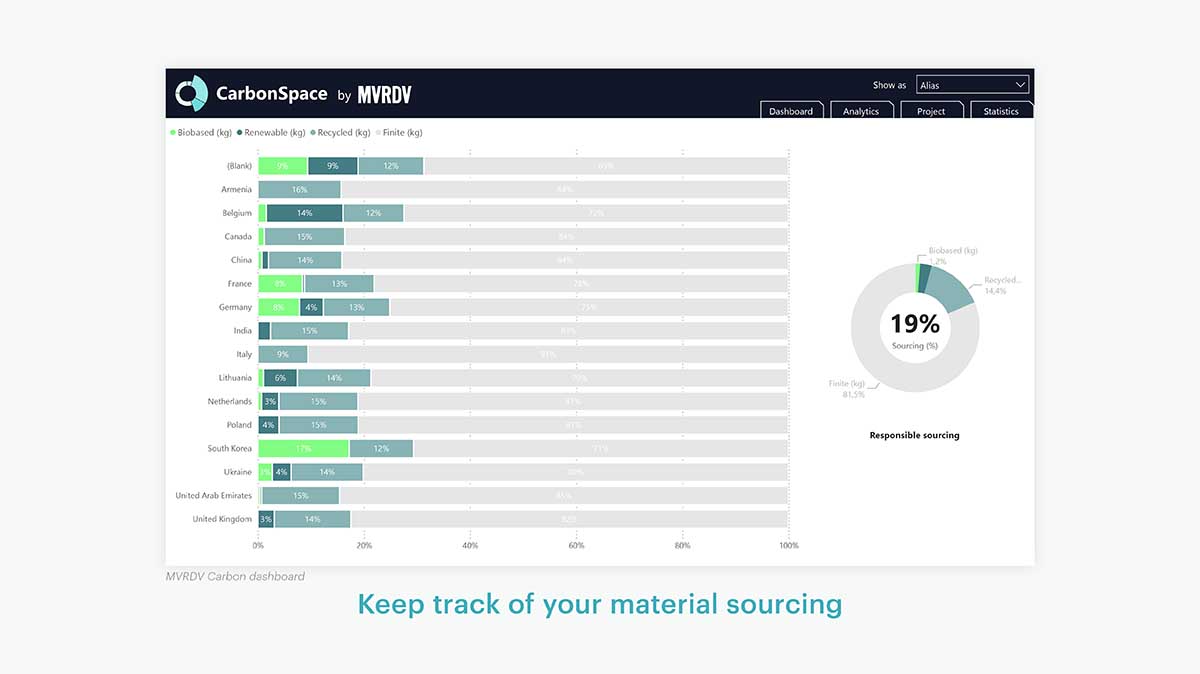
CarbonSpace, Dashboard
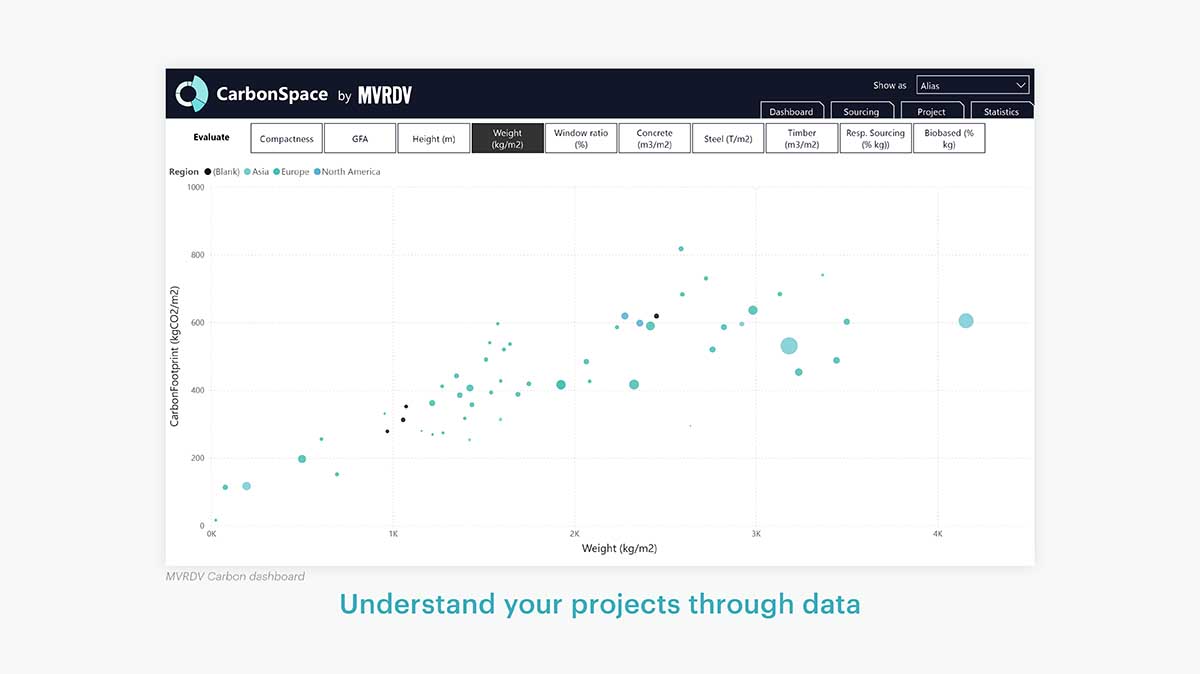
CarbonSpace, Dashboard
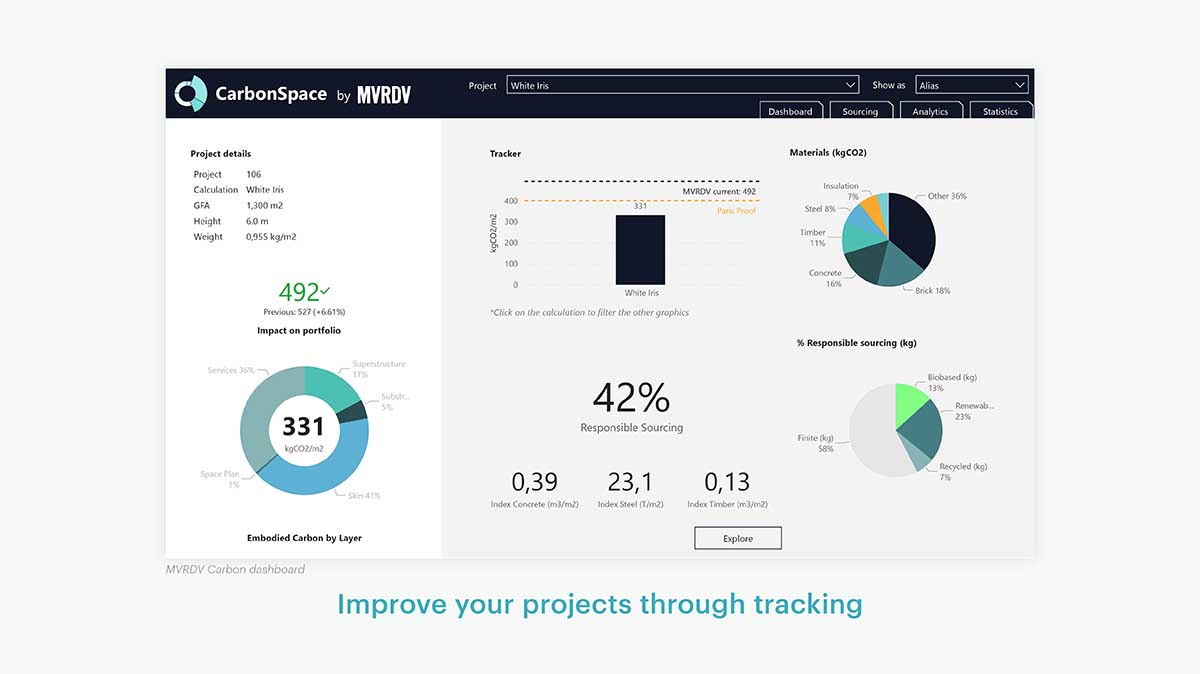
CarbonSpace, Dashboard
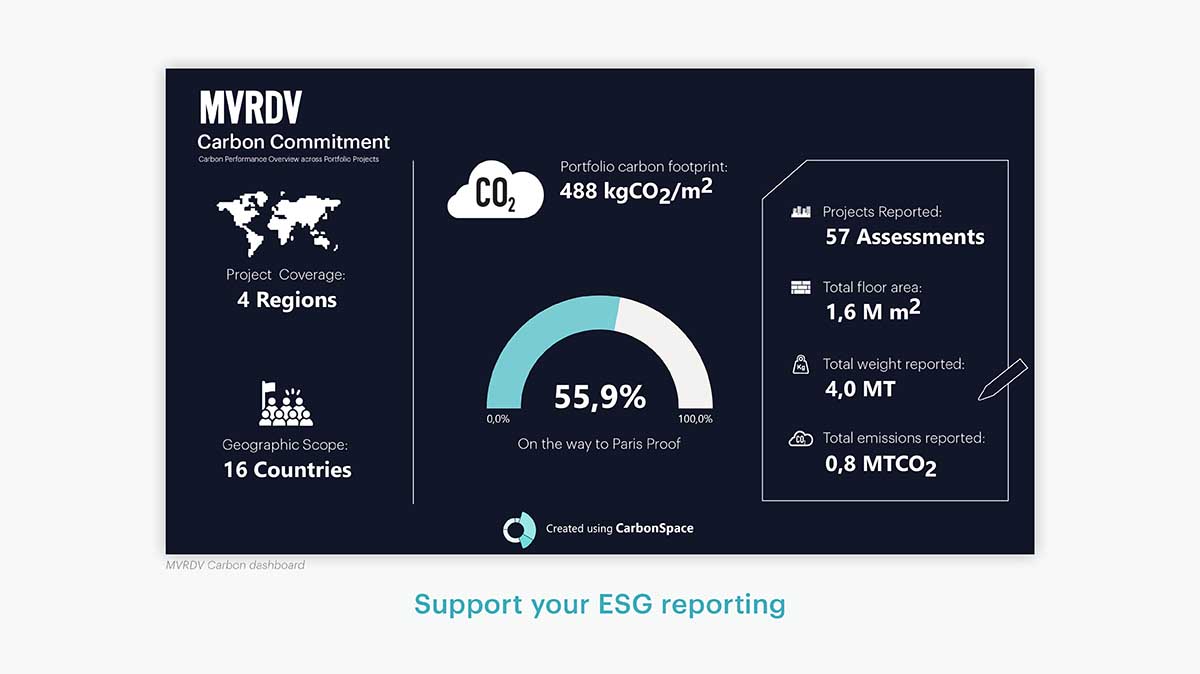
CarbonSpace, Dashboard
Confessions Carbone was on display at the Atelier Néerlandais from September 19th until September 27th.
MVRDV stated that CarbonSpace is in compliance with GDPR legislation. Neither MVRDV nor other parties have access to user data or design information.
Project facts
Project name: CarbonSpace
Year: 2020-2025
Type: LCA software for embodied carbon
Architect: MVRDV
Partner: Jan Knikker
Head of NEXT: Sanne van der Burgh Design Team:
MVRDV NEXT: Boudewijn Thomas
Studio AVW: Arend van Waart
Background LCA data: ÖKOBAUDAT, Bundesinstitut für Bau-, Stadt- und Raumforschung - BBSR
Partners: Council on Tall Buildings and Urban Habitat (CTBUH), Dutch Green Building Council (DGBC)
Beta testers: Buro Happold, Group A, TU Berlin
All visuals are courtesy of MVRDV.
> via MVRDV
